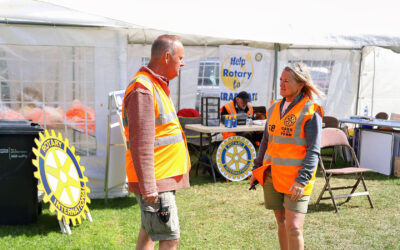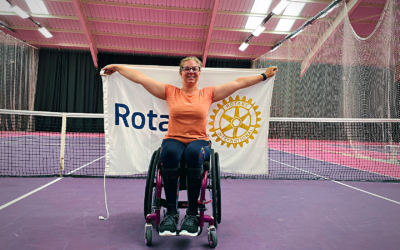There’s no question that meeting the United Nations’ Sustainable Development Goals (SDGs) for 2030 is critical to the future of our planet and the well-being of humankind.
But there’s a stark reality facing everyone less than seven years from the deadline for these goals – we are no longer making progress towards them.
The UN’s Sustainable Development Goals Report for 2022 said “cascading and interlinked crises are putting the 2030 Agenda for Sustainable Development in grave danger, along with humanity’s very own survival.” The report specifically mentioned the ongoing effects of the COVID-19 crisis and the risks created by climate change.
To make matters even direr, Bill Gates said in January 2023 that the war in Ukraine has distracted attention away from reaching the 17 goals and has significantly increased the cost of food and fertilizer – and driven some European nations to start using coal for energy once again – all of which may lead across the world to significantly more spill-over deaths from this war.
The Force for Good Initiative estimates that the cost of meeting the SDGs has risen to an astonishing $176 trillion.
Taken together, what Rotary can accomplish day by day provides hope to everyone wishing to make renewed progress toward meeting the Sustainable Development Goals.”
This is coming at a time when governments worldwide are cutting spending and tightening their money supplies to bring down inflation rates. In the face of this massive and growing challenge,
Rotary International believes there’s an opportunity for governments, Parliaments and non-governmental organisations to expand their partnerships with global service organisations like Rotary.
This is because we are aligned to meeting the same goals and because our volunteer-led, personal service delivery approach can achieve results at a much lower cost than if governments or Parliaments acted alone.
We must look for new ways to restore progress because the Sustainable Development Goals are critical to our future.
The UN accurately describes these goals as “an urgent call for action by all developed and developing countries in a global partnership. They recognise that ending poverty and other deprivations must go hand-in-hand with strategies that improve health and education, reduce inequality, and spur economic growth – all while tackling climate change and working to preserve our oceans and forests.”
Rotary is in complete agreement on this score. Our top corporate goal is the eradication of polio, which aligns with the sustainability goals for good health and partnerships.
When Rotary launched its PolioPlus program in 1985, a thousand children were paralyzed by polio every day in 125 polio-endemic countries. Today, just two countries are wild polio-endemic: Afghanistan and Pakistan.
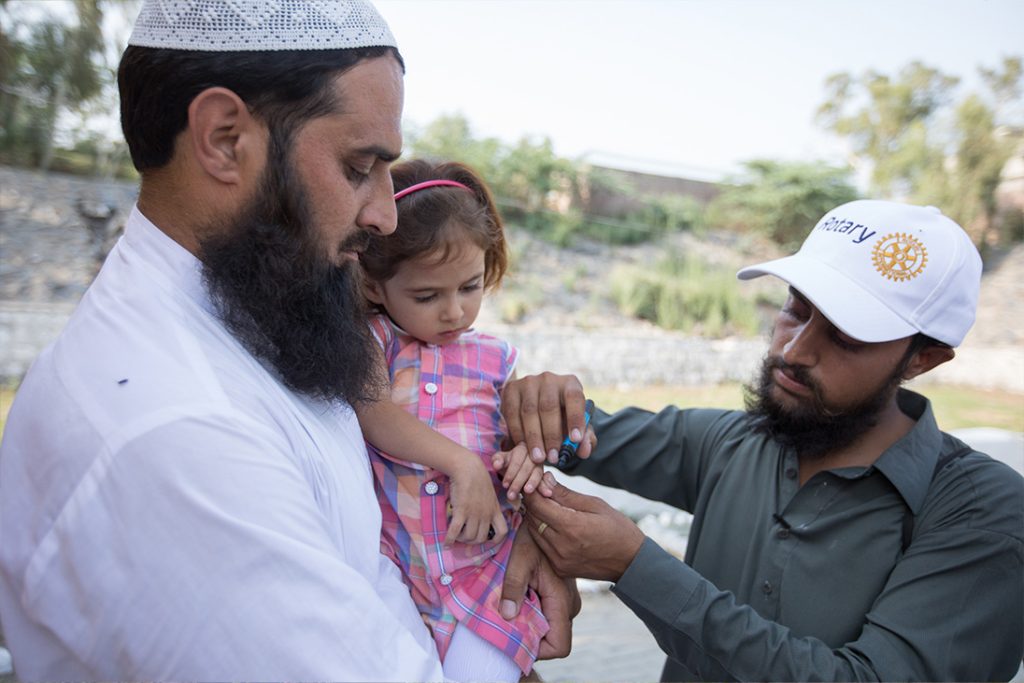

“Our top corporate goal is the eradication of polio, which aligns with the sustainability goals for good health and partnerships.” – Jennifer Jones
Throughout this effort, Rotary has shown what we can do when we draw on the collective strengths of our partners and national governments.
For example, Rotary has helped form a global partnership committed to eradicating polio, including the Bill and Melinda Gates Foundation, GAVI, UNICEF, the World Health Organization, and the U.S. Centers for Disease Control.
Our role in this partnership includes our members’ business expertise and our passion and commitment to the cause. Our persistence and dedication to the cause magnify our impact.
Year after year, we keep fundraising and building awareness. This includes placing the cause of polio eradication on the front burner for governments, Parliaments and NGOs worldwide.
And because of this, Rotary and our partners make an incredible impact. Rotary members have contributed more than $2.6 billion and countless volunteer hours to the fight to end polio.
Together with our partners, we immunize over 400 million children every year. And this effort has paid off dramatically.
With just a handful of cases of wild poliovirus (WPV) reported in the two remaining endemic countries over the past two years, we have an unprecedented opportunity epidemiologically to stop wild poliovirus transmission.
The study reveals that the actions of Rotary volunteers save communities an estimated $850 million in service costs per year.”
By working together, Rotary and our Global Polio Eradication Initiative partners have made a far more significant impact than any individual partner could achieve alone.
And, when we succeed in eradicating polio, it will leave a lasting legacy for public health, not only because it will be only the second virus eradicated in history but also because we will have built a public health infrastructure worldwide that can help make progress towards many of the sustainable development goals.
This is true for so much of the work that Rotary performs worldwide. For example, every year, the Rotary Foundation makes a significant grant of several million dollars through a competitive process to one Rotary-led project that will have a significant regional impact – what we call Programs of Scale.
The first awardee was a partnership between Rotary, World Vision and the Gates Foundation and has a combined budget of US$6 million, with the goal of eliminating malaria in two large provinces in Zambia.
Programs of Scale aims to take the lessons we’ve learned from polio eradication and apply them to important projects worldwide.
All of Rotary’s areas of focus – promoting peace, fighting disease, providing clean water, supporting education, saving mothers and children, growing local economies, and protecting the environment – span numerous UN SDGs.
Many global organisations support projects in these areas. But what makes Rotary unique is the power of our volunteerism and the impact we can make whenever we activate our global networks.
According to a 2019 study by the Johns Hopkins Center for Civil Society Studies, with just 563 paid employees globally, Rotary International annually mobilizes volunteer effort equivalent to nearly 27,000 full-time paid workers.
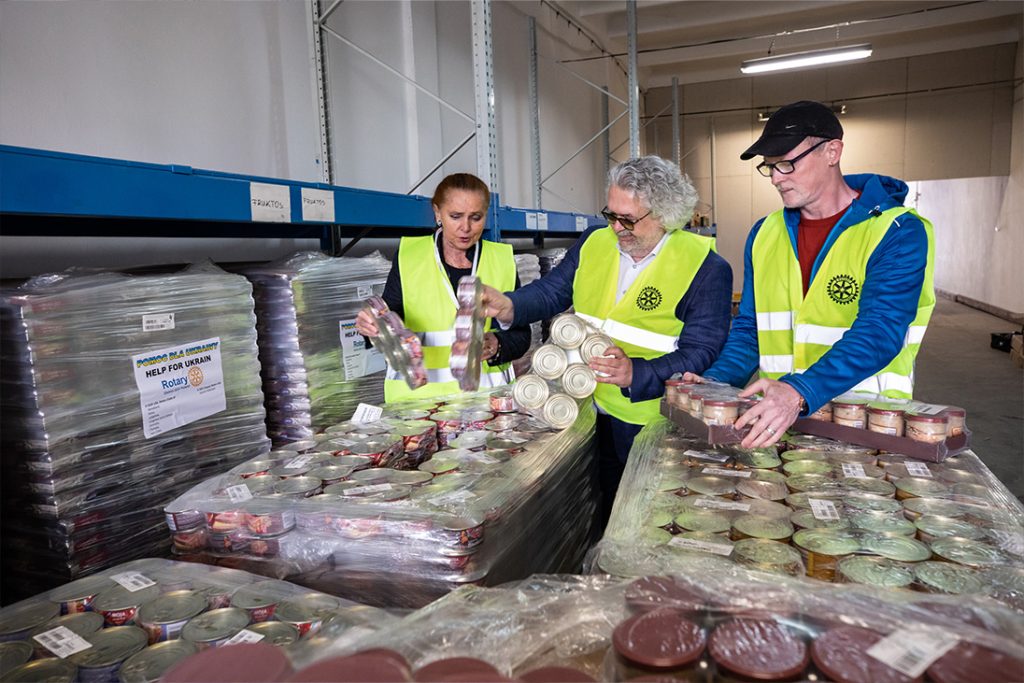

“Rotary International annually mobilizes volunteer effort equivalent to nearly 27,000 full-time paid workers.” – Johns Hopkins Center for Civil Society Studies
Moreover, the study reveals that the actions of Rotary volunteers save communities an estimated $850 million in service costs per year.
This study, entitled ‘The Scope and Scale of Rotary Volunteering’, presents ten key findings that powerfully demonstrate the significant renewable resource of volunteer effort that service organisations like Rotary are generating.
For a world challenged to meet a demanding set of Sustainable Development Goals in the face of withering environmental catastrophes and limited governmental and philanthropic resources, the lesson from this report is clear: volunteer service may provide an enormously valuable contribution toward the achievement of the ambitious goals that the international community has set for itself.
This study was the first systematic, empirical analysis of the extent of volunteer activity generated by a significant global service organisation using the definition of volunteer work and survey methodology outlined in the International Labour Organization’s Manual on the Measurement of Volunteer Work.
“By applying these internationally-sanctioned tools, we now have the first solid, empirical data on the considerable scale of international volunteer effort stimulated by a leading global service organisation and the value of the services the resulting substantial army of Rotary volunteers contributes to the health, education, and welfare of communities across the world,” noted Dr Lester M. Salamon, director of the Johns Hopkins Center for Civil Society Studies and lead author on this report.
This study makes concrete something we have known in Rotary for many years – that you cannot measure the full impact of our excellent work in the world purely by the dollar amounts of our grants and the direct contributions to service projects.
In addition, because Rotary is in more than 200 countries and territories worldwide, we have an unusual ability to connect people, expertise and talents in a way that few organisations can.
A great example of how this all comes together can be seen in Ukraine’s relief efforts. Last year, Rotary members contributed more than $15 million to direct relief for those suffering the effects of the ongoing conflict.
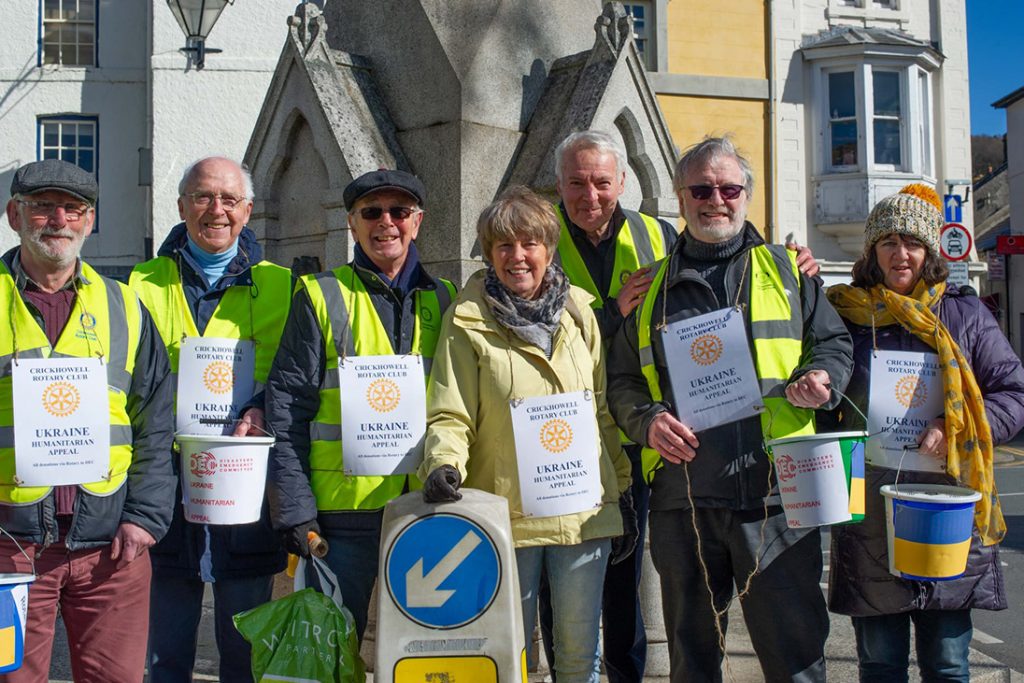

Crickhowell Rotary Club in Wales collecting money for those affected by the conflict in Ukraine.
But these contributions were made even more potent because Rotary members are in neighbouring countries where refugees fled – and in Ukraine itself.
Rotary membership in Ukraine has increased since the conflict began. We estimate that at least double the number of funds have been donated directly to Rotary clubs for specific projects supporting Ukraine refugees and citizens suffering through the day-to-day wartime reality.
And when you consider the multiplier effect of Rotary volunteers – as noted in the Johns Hopkins study – you begin to understand the real impact that our efforts are having.
We identify immediate needs and connect those needs with people willing and able to help. And we do this with expertise and speed that few organisations on earth can match.
Taken together, what Rotary can accomplish day by day provides hope to everyone wishing to make renewed progress toward meeting the Sustainable Development Goals.
By making a big impact on projects that matter most, and harnessing the full power of our 1.4 million members worldwide, Rotary is pointing the way towards future progress, and we do it with a proven track record of raising awareness and keeping the focus on continued progress over decades.
This is the kind of commitment and tenacity the world will need to meet the SDGs – and Rotary is eager to do our part to make this a reality.
Article published courtesy of The Parliamentarian. To read more, follow this link.








